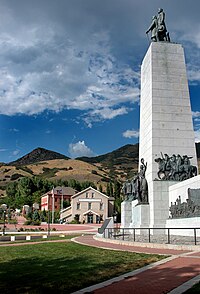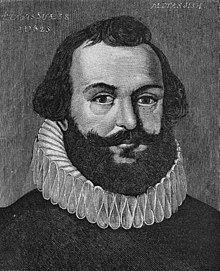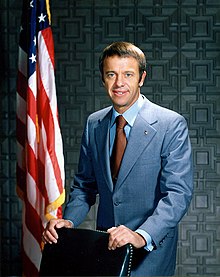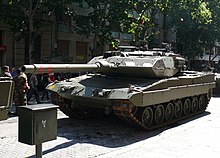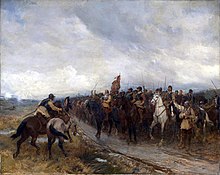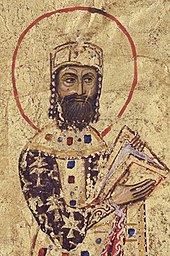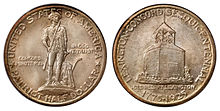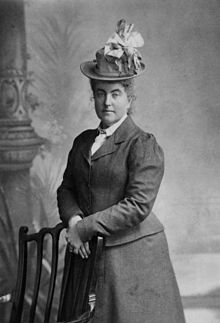Portal:History
The History Portal
History is the systematic study of the past. As an academic discipline, it analyzes and interprets evidence to construct narratives about what happened and explain why it happened, focusing primarily on the human past. Some theorists categorize history as a social science, while others see it as part of the humanities or consider it a hybrid discipline. Similar debates surround the purpose of history, for example, whether its main aim is theoretical, to uncover the truth, or practical, to learn lessons from the past. In a slightly different sense, the term history refers not to an academic field but to the past itself or to individual texts about the past.
History is a broad discipline encompassing many branches. Some focus on specific time periods, such as ancient history, while others concentrate on particular geographic regions, such as the history of Africa. Thematic categorizations include political history, social history, and economic history. Branches associated with specific research methods are quantitative history, comparative history, and oral history.
Historical research relies on primary and secondary sources to reconstruct past events and validate interpretations. Source criticism is used to evaluate these sources, assessing their authenticity, content, and reliability. Historians integrate the perspectives of several individual sources to develop a coherent narrative. Different schools of thought, such as positivism, the Annales school, Marxism, and postmodernism, have distinct methodological implications.
History emerged as a field of inquiry in the ancient period to replace myth-infused narratives, with influential early traditions originating in Greece, China, and later also in the Islamic world. Historical writing evolved throughout the ages and became increasingly professional, particularly during the 19th century, when a rigorous methodology and various academic institutions were established. History is related to many fields, including historiography, philosophy, education, and politics. (Full article...)
Featured picture
Did you know (auto generated)

- ... that for 19 years Tonya Burns had the only retired jersey number in Iowa State women's basketball history?
- ... that much of the research in dress history has been done from documents, illustrations, and photographs rather than by studying items of clothing?
- ... that throughout the history of education in Wales, schools have been held in monastic settlements, cathedrals, residential houses, marketplaces, barns, churches, and village halls?
- ... that the 2022 Boca Raton Bowl was the first bowl game loss in Liberty program history after three wins in their first three appearances?
- ... that at over 400 pounds (180 kg), Desmond Watson is one of the largest players in NCAA Division I football history?
- ... that the Lord Chamberlain's plays are a historical archive of play scripts curated through theatrical censorship that provide a unique insight into attitudes to race and sexuality?
Fanny Bullock Workman (January 8, 1859 – January 22, 1925) was an American geographer, cartographer, explorer, travel writer, and mountaineer, notably in the Himalayas. She was one of the first female professional mountaineers; she not only explored but also wrote about her adventures. She set several women's altitude records, published eight travel books with her husband, and championed women's rights and women's suffrage.
Born to a wealthy family, Workman was educated in the finest schools available to women and traveled in Europe. Her marriage to William Hunter Workman cemented these advantages, and, after being introduced to climbing in New Hampshire, Fanny Workman traveled the world with him. They were able to capitalize on their wealth and connections to voyage around Europe, North Africa, and Asia. The couple had two children, but Fanny Workman was not a motherly type; they left their children in schools and with nurses, and Workman saw herself as a New Woman who could equal any man. The Workmans began their travels with bicycle tours of Switzerland, France, Italy, Spain, Algeria and India. They cycled thousands of miles, sleeping wherever they could find shelter. They wrote books about each trip and Fanny frequently commented on the state of the lives of women that she saw. Their early bicycle tour narratives were better received than their mountaineering books. (Full article...)
On this day
February 10: Feast day of Saint Scholastica (Christianity); National Memorial Day of the Exiles and Foibe in Italy
- 1355 – A tavern dispute between students of the University of Oxford and townspeople in Oxford became a riot that left about 90 people dead.
- 1919 – The Inter-Allied Women's Conference (delegates pictured) opened as a counterpart to the Paris Peace Conference, marking the first time that women were allowed formal participation in an international treaty negotiation.
- 1939 – Spanish Civil War: The Nationalists concluded their conquest of Catalonia and sealed the border with France.
- 2009 – The Russian satellites Iridium 33 and Kosmos 2251 destroyed each other in the first accidental hypervelocity collision between two intact satellites in low Earth orbit.
- Ira Remsen (b. 1846)
- Edith Clarke (b. 1883)
- Joseph Lister (d. 1912)
- Joan Curran (d. 1999)
Selected quote
I hate this fast growing tendency to chain men to machines in big factories and deprive them of all joy in their efforts — the plan will lead to cheap men and cheap products.
— Richard Wagner, 19th century German composer
Related portals
More Did you know...
- ... that on 26 April 1881 HMS Doterel (pictured) exploded, killing 143 of the 155 crew members?
- ... that causes of the deaths at the Berlin Wall included shooting, drowning, suffocation, suicide, and falling from a balloon?
- ... that the 19th-century swindler Bertha Heyman, known as "The Confidence Queen," conned men by pretending to be a wealthy woman who was unable to access her fortune?
- ... that only four great uncial codices have survived until the present day?
- ... that after World War II, Polish resistance organizer and Warsaw Uprising fighter Jan Mazurkiewicz was brutally tortured by the authorities in communist Poland?
- ... that tiny Paederus beetles may have caused some of the ten Plagues of Egypt?
- ... that the only known report of bloodshed during the simulated Nazi invasion of Winnipeg was from a woman who cut her thumb while preparing toast?
- ... that Dacian bracelets were used as currency and votive offerings?
Topics
Categories

History • By period • By region • By topic • By ethnic group • Historiography • Archaeology • Books • Maps • Images • Magazines • Organizations • Fictional • Museums • Pseudohistory • Stubs • Timelines • Chronology • People • Wikipedia historians
WikiProjects
![]() WikiProject History •
Ancient Near East • Australian History • Classical Greece and Rome • Dacia • Former countries • History of Canada • Chinese history • European history • Heraldry and vexillology • Indian history • Jewish history • Medieval Scotland • Mesoamerica • Military history • Middle Ages • History of Science
WikiProject History •
Ancient Near East • Australian History • Classical Greece and Rome • Dacia • Former countries • History of Canada • Chinese history • European history • Heraldry and vexillology • Indian history • Jewish history • Medieval Scotland • Mesoamerica • Military history • Middle Ages • History of Science
WikiProject Time • Days of the Year • Years
WikiProject Biography • Composers • Political figures • Saints • United States Presidents
Things you can do
 |
Here are some tasks awaiting attention:
|
Associated Wikimedia
The following Wikimedia Foundation sister projects provide more on this subject:
-
Commons
Free media repository -
Wikibooks
Free textbooks and manuals -
Wikidata
Free knowledge base -
Wikinews
Free-content news -
Wikiquote
Collection of quotations -
Wikisource
Free-content library -
Wikiversity
Free learning tools -
Wiktionary
Dictionary and thesaurus

